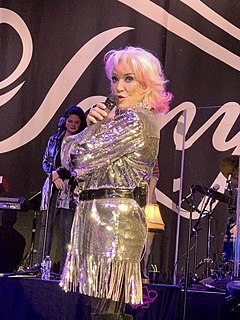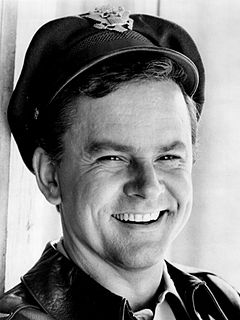A Quote by George MacKay
My dad used to work in the theater as a stage manager, production manager, and lighting designer.
Related Quotes
An interesting difference between new and experienced stage managers is that the new stage manager thinks of running the show as the most difficult and most demanding part of the job, whereas the experienced stage manager thinks of it as the most relaxing part. Perhaps the reason is that experienced stage managers have built up work habits that make then so thoroughly prepared for the production phase that they [can] sit back during performances to watch that preparation pay off.
There is no definitive list of the duties of a stage manager that is applicable to all theaters and staging environments. Regardless of specific duties, however, the stage manager is the individual who accepts responsibility for the smooth running of rehearsals and performances, on stage and backstage.
My dad was always my manager as far as I was concerned, even when I had another manager. At times he let me go with someone else who he thought could take me to another level when he couldn't, and he was right. But they were in it for another reason. He was in it because he wanted to see me succeed no matter what, and he made decisions based on being a dad as opposed to a manager.
I dropped out in middle school. I dropped out in, towards the beginning of the ninth grade. And then I started studying -I started taking acting classes at a, well first I was like in a community theater at that time in Torrance, California, so I finished up like my season with that community theater just acting in, you know, acting in a small part on this play or a big part on that play or a stage manager or assistant stage manager in another play.
The manager administers; the leader innovates. The manager has a short-range view; the leader has a long-range perspective. The manager asks how and when; the leader asks what and why. The manager has his eye on the bottom line; the leader has his eye on the horizon. The manager accepts the status quo; the leader challenges it.

































